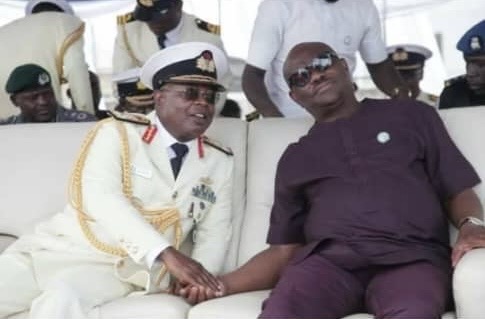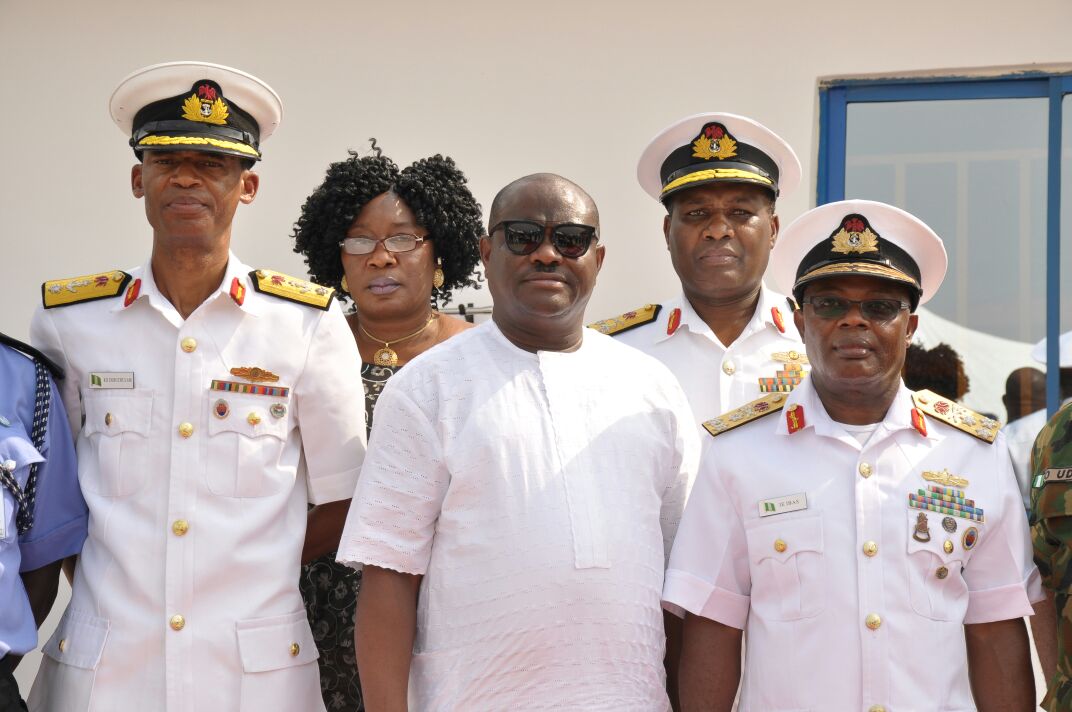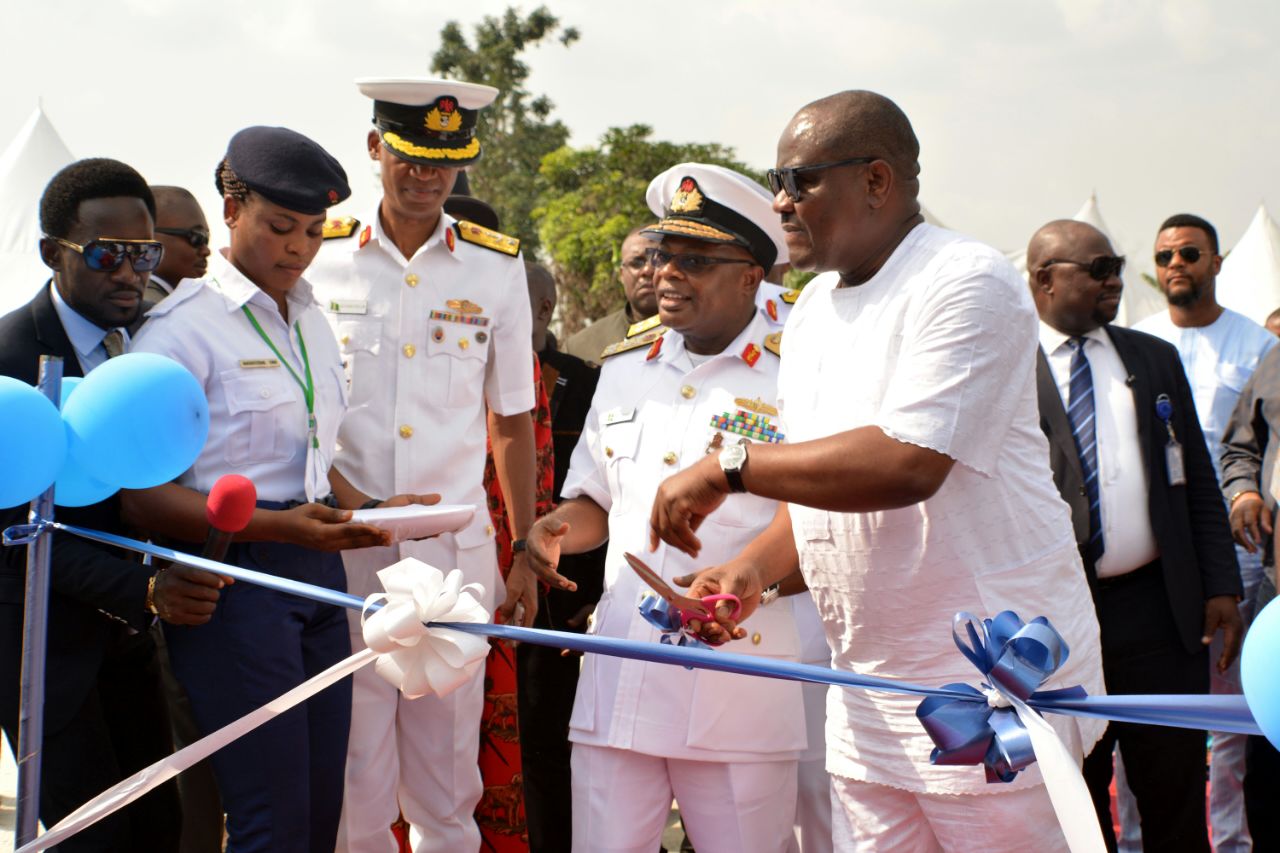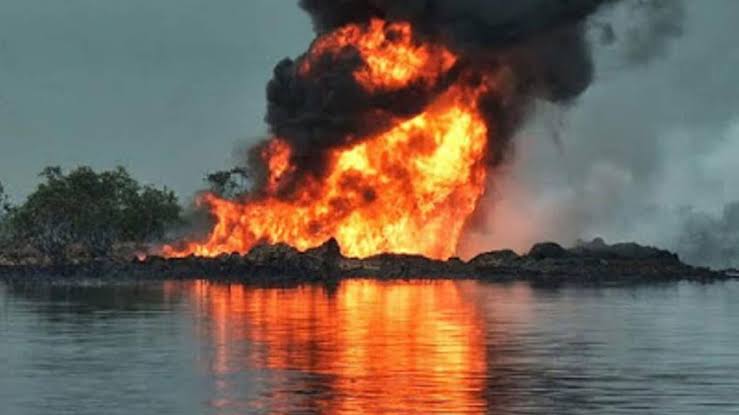Could the Rivers State of Emergency Be a Veiled Signal of Favoritism?
Photos of former Governor Nyesom Wike and Vice Admiral Ibok-Ete Ibas circulating online leads back to when Nyesom Wike as the former Governor forged a close working relationship with Vice Admiral Ibok-Ete Ibas, the 22nd Chief of Naval Staff.

Under their collaboration, the state government supplied the Nigerian Navy with ten state-of-the-art gunboats specifically designed to patrol the region’s waterways. According to Wike, these vessels were acquired to strengthen naval operations and safeguard national assets, with strict instructions to keep their deployment within the state. In response, Vice Admiral Ibas commended the initiative, adding that the improvements at NNS Pathfinder where new accommodations were provided boosted the morale of Navy personnel. The Admiral also expressed gratitude for the reconstruction of the access road to the base, highlighting the former governor’s commitment to the welfare of the Navy.
Given the historical ties between the Navy and Wike’s administration, this leads to the question of if the president is indirectly picking sides?.

Former Governor of Rivers State, Nyesom Wike and Vice Admiral Ibok-Ete Ibas

Former Rivers State Governor, Nyesom Wike, the Chief of Naval Staff, Admiral Ibok Ibas, the Commander of NNS PATHFINDER, Navy Commodore K.O Egbuchulam at the commissioning of the 120 Housing Units named Rivers Quarters at the Navy NNS Pathfinder on the 17th of January, 2017.
However, controversy has emerged over the recent declaration of a state of emergency in Rivers State. While some argue that the measure is crucial for restoring peace, others see it as a breach of constitutional norms. Critics point to the suspension of the governor, his deputy, and members of the State House of Assembly as an overreach of presidential authority.
Legal experts, including Maruf Muhammad and UK-based human rights lawyer Morakinyo Olasupo, stress that such actions should follow established legal procedures either through the state assembly or judicial intervention. They argue that a president cannot unilaterally suspend a democratically elected governor unless there is clear evidence of a breakdown of law and order or an imminent threat to national security.
The situation is further complicated by Rivers State’s long-standing issues with pipeline vandalism, a problem that has persisted even before Wike’s tenure and a recent pipeline explosion in Gokana. Many question whether these incidents justify the drastic measure of declaring a state of emergency.

Trans Niger Pipeline Explosion, Rivers State.
It is very important to know that as much as the President has the constitutional power to declare a State of Emergency in any state under Section 305 of the 1999 Constitution (as amended), there is a process to follow for it to be in effect.
This can only happen under specific circumstances, such as a major security threat, a breakdown of law and order, natural disasters, or when a state government can no longer function effectively. In some cases, the governor of the affected state may also request the declaration.
For a State of Emergency to take effect, the President must issue an official proclamation, which must then be approved by the National Assembly. If the legislature is in session, approval must come within two days; if not, they have up to 10 days. Once approved, the emergency remains in force for six months and can be extended if necessary.
During this period, the federal government may take over state functions, deploy security forces to restore order, and impose certain restrictions on civil rights. In some cases, the governor and state legislature may be suspended, though this remains a controversial aspect of emergency declarations.
This has led to a series of pressing questions: Can a president legally suspend a state governor?
What will the state of emergency mean for Rivers State’s future?
Will the National Assembly consent to this decision by the President?
And does the appointment of key naval administrators signal preferential treatment toward former allies?
As the debate intensifies, more details are expected to emerge regarding the legality and implications of the state of emergency, the role of Vice Admiral Ibas, and any underlying political influences. Stay tuned as this story continues to develop.